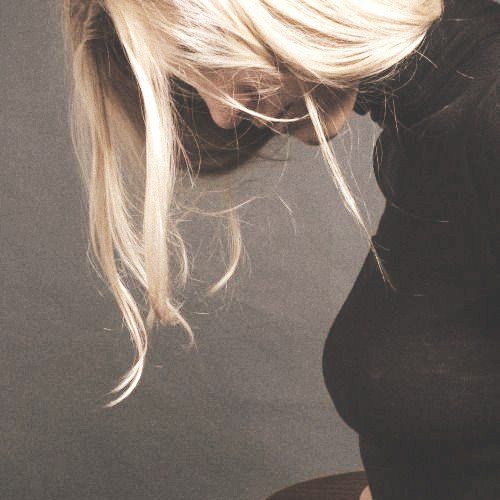 The 4th house in astrology serves as a symbolic representation of our home, family life, and our psychological roots. This house, under the rulership of the Moon and closely associated with the nurturing sign of Cancer, delves into the very core of our being. It’s a place where we not only connect with our personal experiences but also gain insight into our ancestral, national, and racial origins. In essence, this realm forms the bedrock upon which our entire existence rests, leaving an indelible imprint of our family’s influence on us. Its a place where familiarity, rhythms, cycles, and phases create a comforting sense of security. It is here that the concept of belonging reigns supreme, where individuals deeply care for each other and openly express their affection and concern.
The 4th house in astrology serves as a symbolic representation of our home, family life, and our psychological roots. This house, under the rulership of the Moon and closely associated with the nurturing sign of Cancer, delves into the very core of our being. It’s a place where we not only connect with our personal experiences but also gain insight into our ancestral, national, and racial origins. In essence, this realm forms the bedrock upon which our entire existence rests, leaving an indelible imprint of our family’s influence on us. Its a place where familiarity, rhythms, cycles, and phases create a comforting sense of security. It is here that the concept of belonging reigns supreme, where individuals deeply care for each other and openly express their affection and concern.
Imagine it as the hearth around which we gather, not just with our kin, but with our history, and the lullabies of the Moon herself. It’s the cradle, where our psychological roots twist and turn, seeking nourishment from the past. It’s the place where we learn the language of love and belonging, about who we are and where we come from. In the 4th house, security is more than just a roof over our heads; it’s the feeling of being held, of being seen, of knowing that no matter how far we wander, there’s always a light on, a door ajar, a place at the table. It’s the emotional anchor in the stormy seas of existence, the silent assurance that we are part of something greater, something eternal. Here, we are always home, forever entwined with the essence of our origins, forever safe in the arms of our family.
A Place of Love
 The 4th house is, in many ways, a place of love, nurturing, protection, and care. It is within the family unit that we first encounter these vital aspects of life, shaping our emotional history and influencing the way we approach relationships and our understanding of security and comfort throughout our lives. Within this domain, we not only form the most intimate bonds but also learn the art of give and take, empathy, and the foundations of our values. It’s where we learn about our cultural heritage and traditions, as well as the emotional nuances passed down through generations. It speaks to the idea that we are not isolated beings but are connected to our family lineage, nationality, and race.
The 4th house is, in many ways, a place of love, nurturing, protection, and care. It is within the family unit that we first encounter these vital aspects of life, shaping our emotional history and influencing the way we approach relationships and our understanding of security and comfort throughout our lives. Within this domain, we not only form the most intimate bonds but also learn the art of give and take, empathy, and the foundations of our values. It’s where we learn about our cultural heritage and traditions, as well as the emotional nuances passed down through generations. It speaks to the idea that we are not isolated beings but are connected to our family lineage, nationality, and race.
It’s within these walls that we first learn to love and be loved, to protect and be protected. This hallowed domain, often overlooked, is where our emotional DNA is forged, shaping our hearts. From our earliest days, the family unit becomes our first school of life. Every smile, every tear, every word spoken in the halls of our childhood home is felt deep within our soul. In this realm, we learn the true meaning of security, the shared laughter and even the occasional familial squabble. These experiences are the bricks and mortar of our inner fortress, the place we retreat to when the world grows cold. The 4th house is where we learn to honor our roots, to celebrate the customs and rituals passed down through the generations. These traditions are the living, breathing essence of our lineage, connecting us to a past that transcends time and space. We are not isolated entities adrift in the universe, we are part of a continuum, a never-ending chain of love and legacy. Here, we are reminded that we are always connected, always loved, always home.
Healing Past Wounds
 In the 4th house, we may uncover stories and patterns in fabric of our existence, shedding light on why we feel and react the way we do. It offers us a chance to heal past wounds, honor our roots, and, in turn, build a solid foundation upon which to construct our own lives. During times of uncertainty and upheaval, this realm calls us back to the comforts of home and family, serving as a poignant reminder of the vital role these foundational relationships play in shaping our emotional well-being. It reminds us that within our homes and the warmth of our family bonds, we find not only emotional sustenance but also the parts of our past from which our personal growth and development spring forth.
In the 4th house, we may uncover stories and patterns in fabric of our existence, shedding light on why we feel and react the way we do. It offers us a chance to heal past wounds, honor our roots, and, in turn, build a solid foundation upon which to construct our own lives. During times of uncertainty and upheaval, this realm calls us back to the comforts of home and family, serving as a poignant reminder of the vital role these foundational relationships play in shaping our emotional well-being. It reminds us that within our homes and the warmth of our family bonds, we find not only emotional sustenance but also the parts of our past from which our personal growth and development spring forth.
In the depths of the 4th house, we find the key to unlocking the mysteries of our emotional responses. Why do we react with such intensity to certain situations? Why do some wounds seem to linger, while others heal effortlessly? These questions find their answers as we delve into the annals of our past, unearthing the hidden influences that have sculpted our psyche. It’s a journey of discovery, one that offers the profound opportunity to heal and grow. It’s a way of saying to the past, “I see you, I understand you, and I carry you with me as I move forward.”
During times of uncertainty and upheaval, the 4th house is our haven. It calls us back to the comforts of home and family, the places and people who remind us of our true selves. In the arms of our loved ones, we find the strength to weather any storm. These foundational relationships are not just vital; they are life-sustaining, the very bedrock of our emotional well-being. Within our homes and the warmth of our family bonds, we find more than just comfort. We find the nourishment that fuels our personal growth and development. It’s a beautiful reminder that our past is not a burden but a rich source of strength and wisdom.
The Deepest Layers of Our Psyche
 The 4th house in astrology serves as a window into the deepest layers of our psyche and our early life experiences. It unveils significant insights into our innermost emotions, our family dynamics, and the very essence of what we perceive as “home.” One of the key insights provided by the planets positioned in this section of the chart is a glimpse into our formative home environment during our early years. This house acts as a mirror reflecting how we were conditioned and molded during our formative years. It is within this sphere that we first learn the language of emotions, of familial relationships, and the foundational beliefs that shape our understanding of the world. These planetary influences essentially write the script for our ability to find emotional security and comfort throughout our lives.
The 4th house in astrology serves as a window into the deepest layers of our psyche and our early life experiences. It unveils significant insights into our innermost emotions, our family dynamics, and the very essence of what we perceive as “home.” One of the key insights provided by the planets positioned in this section of the chart is a glimpse into our formative home environment during our early years. This house acts as a mirror reflecting how we were conditioned and molded during our formative years. It is within this sphere that we first learn the language of emotions, of familial relationships, and the foundational beliefs that shape our understanding of the world. These planetary influences essentially write the script for our ability to find emotional security and comfort throughout our lives.
Think of it as a mystical looking glass, offering glimpses into the formative forces that shaped us. Within this inner space, the planets here play pivotal roles, each one a character in the drama of our early years. They reveal the nuances of our home environment, the unseen currents that molded our young hearts and minds. It’s where we first learn the lexicon of emotions, where the roots of our foundational beliefs are planted deep within our souls. The 4th house is where we come to understand the essence of what “home” truly means. The planets’ positions within this house offer clues to the emotional imprints left by our upbringing. Was the Sun shining brightly, suggesting a warm and encouraging environment? Or perhaps Saturn’s stern presence indicates a more controlled, disciplined upbringing? Each planetary figure contributes to the rich, complex stew of our early experiences. These influences don’t just evaporate as we grow older; they set the stage for our lifelong quest for emotional security and comfort. They hold the secrets of our emotional landscape, guiding us towards understanding how we seek comfort, how we nurture, and how we yearn to be nurtured in return.
A Need for Belonging
 It is here that we explore our innate need for a sense of belonging to a close-knit family unit. This need is the emotional foundation upon which we build our sense of identity and self-worth. The planetary influences in this house shed light on how we seek to establish a sense of “home” within ourselves and how we manifest this yearning in our relationships and daily lives. It encapsulates what we inherit from our family of origin, both in terms of their positive and challenging aspects. For instance, if the Sun is positioned in the 4th house, it can present challenges because the strong family background might cast a shadow over one’s own identity and individuality. These individuals may struggle with a sense of obligation and duty towards their family, sometimes at the expense of their own desires and aspirations. When the Moon finds its place in the 4th house, it seeks belonging and emotional retreat. These individuals often possess heightened psychic sensitivity and an intense connection to their emotions. They may have a deep desire for a secure and nurturing home environment and can be profoundly influenced by the emotions of those they share their space with. Moreover, the 4th house serves as a barometer for how easily we express our deepest needs and feelings. It is the realm of habits, routines, and familiar patterns, shaping how we respond to and interact with our emotional environment.
It is here that we explore our innate need for a sense of belonging to a close-knit family unit. This need is the emotional foundation upon which we build our sense of identity and self-worth. The planetary influences in this house shed light on how we seek to establish a sense of “home” within ourselves and how we manifest this yearning in our relationships and daily lives. It encapsulates what we inherit from our family of origin, both in terms of their positive and challenging aspects. For instance, if the Sun is positioned in the 4th house, it can present challenges because the strong family background might cast a shadow over one’s own identity and individuality. These individuals may struggle with a sense of obligation and duty towards their family, sometimes at the expense of their own desires and aspirations. When the Moon finds its place in the 4th house, it seeks belonging and emotional retreat. These individuals often possess heightened psychic sensitivity and an intense connection to their emotions. They may have a deep desire for a secure and nurturing home environment and can be profoundly influenced by the emotions of those they share their space with. Moreover, the 4th house serves as a barometer for how easily we express our deepest needs and feelings. It is the realm of habits, routines, and familiar patterns, shaping how we respond to and interact with our emotional environment.
The 4th house is our the spiritual cocoon where we hide ourselves away. It’s here that our innate need for belonging takes root, forming our identity. Like the tender shoots of a young plant, our sense of self is nurtured by the rich soil of our early home environment, shaped by the planetary influences that reside in this intimate corner of our astrological chart. It captures the essence of what we inherit from our family, both the luminous blessings and the shadows that challenge us. It governs the realm of habits, routines, and familiar patterns that shape our responses to the world around us. Understanding its influences allows us to honor our past, heal our wounds, and create a future where we feel truly at home, both within ourselves and in our relationships. In doing so, we build a solid foundation for a life filled with emotional security, profound connections, and a deep sense of belonging.
The Nuclear Family
 The “nuclear family” is a reflection of how societal norms and family structures have evolved over time. Historically, this term referred to a specific family arrangement consisting of a mother, father, and approximately 2.4 children—an construction that was considered the norm and ideal for many decades. However, in today’s world, the definition of family has broadened considerably to encompass a wide range of diverse and inclusive family structures. In modern society, families take on various forms, including single-parent households, grandparent-led households, families with adopted children, same-sex couples raising children, and more. This evolution of family structures reflects the changing values and norms within society. It emphasizes the importance of recognizing and celebrating the diversity of family experiences and relationships that exist today.
The “nuclear family” is a reflection of how societal norms and family structures have evolved over time. Historically, this term referred to a specific family arrangement consisting of a mother, father, and approximately 2.4 children—an construction that was considered the norm and ideal for many decades. However, in today’s world, the definition of family has broadened considerably to encompass a wide range of diverse and inclusive family structures. In modern society, families take on various forms, including single-parent households, grandparent-led households, families with adopted children, same-sex couples raising children, and more. This evolution of family structures reflects the changing values and norms within society. It emphasizes the importance of recognizing and celebrating the diversity of family experiences and relationships that exist today.
A mother, a father, and their 2.4 children (where the 0.4, I imagine, is perpetually on the verge of adolescent rebellion). This neat, homogenous unit was championed as the blueprint for familial success, a model that, for many years, held sway over the collective imagination. But alas, life, in its infinite complexity, has a way of resisting tidy categorizations. Today, the evolution of family structures is a shift in living arrangements and a reflection of our changing values. Families with adopted children illustrate the beautiful truth that bonds of love are not confined to genetic ties. Same-sex couples raising children shatter the antiquated notion that parenting is a strictly heterosexual endeavor. And let us not forget the blended families, the result of second marriages and partnerships, where step-siblings and half-siblings form new bonds. These families showcase the beauty of second chances and the strength found in forging new relationships amidst the remnants of old ones. It’s about human connection: love, support, and mutual respect.
Memories
 Despite these evolving family structures, the 4th house in astrology continues to hold its significance as a pivotal symbol for understanding human relationships. It a repository of memories and experiences related to our family of origin—the individuals who played key roles in our upbringing during childhood. These early interactions with our family members hold tremendous influence over various aspects of our adult lives, shaping our beliefs, behaviors, and emotions. It’s a deep well of introspection, representing our emotional landscape, moods, and subconscious thoughts. It is the realm of emotions, often operating beneath the surface of our conscious awareness. While these emotional undercurrents may not always be immediately evident, they have a major impact on our sense of feeling at home. It’s our emotional retreat where we can disconnect from the demands of everyday life and reconnect with our inner selves.
Despite these evolving family structures, the 4th house in astrology continues to hold its significance as a pivotal symbol for understanding human relationships. It a repository of memories and experiences related to our family of origin—the individuals who played key roles in our upbringing during childhood. These early interactions with our family members hold tremendous influence over various aspects of our adult lives, shaping our beliefs, behaviors, and emotions. It’s a deep well of introspection, representing our emotional landscape, moods, and subconscious thoughts. It is the realm of emotions, often operating beneath the surface of our conscious awareness. While these emotional undercurrents may not always be immediately evident, they have a major impact on our sense of feeling at home. It’s our emotional retreat where we can disconnect from the demands of everyday life and reconnect with our inner selves.
It’s here that we dive deep into the repository of our earliest memories and experiences, where our childhood still resonates. In this hallowed space, we confront the individuals who played pivotal roles in our upbringing. These foundational relationships, whether tender or tumultuous, impart lessons that ripple through our adult lives. We peer into the depths of our psyche, to understand the moods and subconscious thoughts that flow beneath the surface of our conscious awareness. It’s the realm where our emotions dwell, often hidden from plain sight, yet exerting a powerful influence over our sense of home and belonging. Here, we can find rejuvenation, a space to process our feelings and reflect on our journeys.














